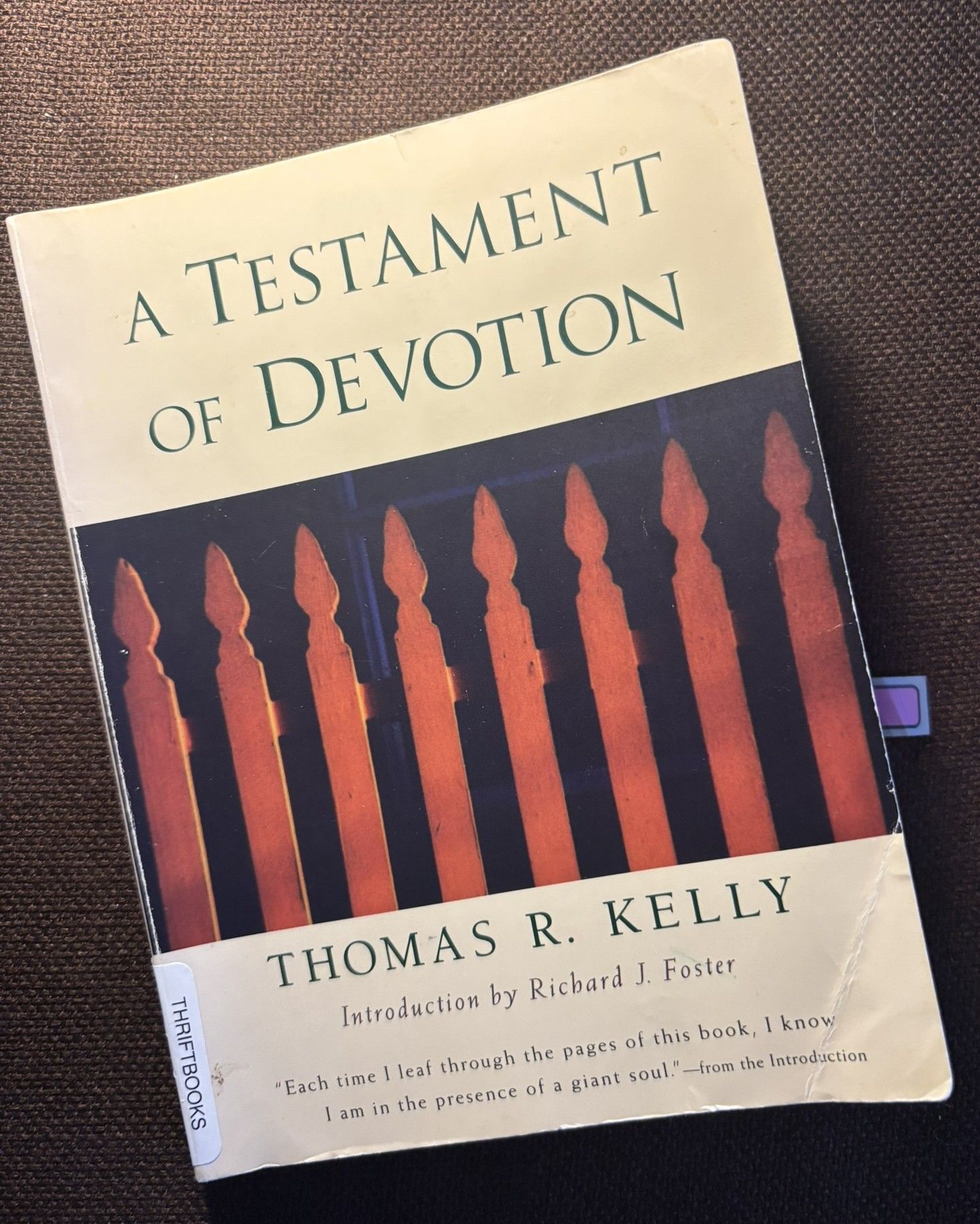Grace and Gratitude
It may not sound like much, but for her it was a widow's mite.

“Workplace grace is a gift given unconditionally and voluntarily by an unobligated giver, the giver being human or divine, in a work context.”
~David O’Connell,
Grace in the Workplace: A Process Model of Its Impact
Journal of Management, Spirituality, and Religion.
“Someday, and that day may never come, I will call upon you to do a service for me.
But until that day, accept this justice as a gift on my daughter's wedding day.”
~Don Corleone, in The Godfather.
For most of my life – most years, months, days, moments – I’ve been Michael-centric. I’ve spent far too much of my time thinking about, being concerned about, well, me. My needs, my wants, my concerns. How I felt about it, how I thought about it, how I was worried about it, how I cared about it, how I gained by it, how I lost by it. Others – my parents, my spouse, my friends, my co-workers – should be thinking about me, I just assumed, and helping me and being there for me when I needed them. For which I was grateful but took for granted most times.
Heck, that's still way too true today, and now I know better.
When my grandmother, Grandma Hazel, died, she left each of her four grandchildren $5,000.00. She had been living for years in a small apartment in Albuquerque close to my parents. After my grandfather, Grandpa Milton, died she had had to sell the family farm, located just outside the small Kansas town of Winfield. Going from running a farm in rural Kansas with my grandfather to living in a small apartment in Albuquerque, NM must have been quite a transition. Must have been quite a stripping of much that had been meaningful to her. Yet, she still had her beloved family.
I visited her sporadically. I was glad when I did, but I had other things, big things, important things, Michael-things, to do. I didn’t have nearly as much time for my aging grandmother as I actually had.
When she died, with just the possessions in her apartment to her name, she left me $5,000.00. And my sister, and my brother, and my sister. $5,000 each. It may not sound like much decades later, and perhaps she also left some money for my parents, I don't know, but for her it was a widow's mite.
David O’Connell, in his excellent study about grace in the workplace, defined workplace grace as, “…a gift given unconditionally and voluntarily by an unobligated giver, the giver being human or divine, in a work context.” Setting aside the divine and the workplace for this discussion, we might consider grace to be a gift given to us by another in the same way. My grandmother had no obligation to give me $5,000. I received it after she died, so there was zero opportunity to pay it – in any form – back. If memory serves (often it doesn’t), I didn’t even know it was coming so I could thank her in advance, visit her a bit more, think to drop some flowers off now and again. Another way to look at is that I missed the opportunity to make her pure gift of love into a transaction. I’ll drop by, thanks in advance for the $5,000.
She gave it to us without any expectation of any return. I view it as a gift of pure grace.
Grace is a non-transactional gift. It need not be repaid. Unlike most favors, we are not expected, often we couldn't even if we wanted, to return gifts of grace. There is no quid pro quo. Unlike Don Corleone, in The Godfather, when agreeing to punish two young men who had assaulted the daughter of Amerigo Bonasera, told him, “Someday, and that day may never come, I will call upon you to do a service for me. But until that day, accept this justice as a gift on my daughter's wedding day.”
You owe me a service, Mr. Undertaker. You are in my debt.
Later in the movie he called in that debt.
With the gift of grace there is no “You owe me.” No obligation. No debt. No reciprocity. Anonymous giving, when the receiver has no idea from whom the gift has come, can be that kind of gift (even though in reality we do receive that warm feeling, knowing that someone, perhaps, feels just a little bit more cared for and loved).
More, gratitude and grace are related. And this brings us back to the unearned gifts that we receive from God constantly, including the very gift of our lives.
"Gratitude," Reverend Tish Harrison Warren wrote, "gives birth to joy because gratitude teaches us to receive life as a gift in the moment we’re in. It teaches us that our very existence is a gift.”
And then the part I like the most - we have the ability to become more grateful, generous, and joyful people through our own efforts.
“Gratitude — like ingratitude — can be cultivated," Warren said, and then she tells us how. Through daily practice, saturated in the unearned gifts we experience every moment of every day.
"Thankfulness is a daily practice that becomes a habit that becomes a disposition" she said. "To begin to develop this disposition, we have to intentionally notice our interdependence, and how much we receive from others. Everyone alive is here because someone sacrificed for us, birthed us, fed us, and cared for us. None of us are self-made. In order to exercise the muscle of gratitude, we must live each day acknowledging how much we owe to others," she said.
And then Reverend Warren brings it home. "In my book, “Prayer in the Night,” [she wrote], “To choose joy is to see all existence as a gift, which is why the practice of joy is inseparable from the practice of gratitude."
Hey, I can do that. Practice grateful living. and become a more grateful person over time. Practice humility, generosity, and become a more humble, more generous person over time. Knowing we can't ever be as grace-full as we'd like, as we've seen our grandparents be, we can move more and more in that direction as the days, years, months, and decades go by.
We are more attuned than usual to the importance of being grateful and giving thanks on Thanksgiving Day and during the Christmas and entire holiday season, but we are given gifts, human and divine, throughout the year which we cannot directly repay, and for which we should be thankful each day of the year. At our best we will also find ways to be grace-givers. Perhaps we'll give gifts too which cannot be repaid to us.
Maybe we have a grandmother's gift to give, which will live on, even after we have passed on.
Sources
O'Connell, D. (2022). Grace in the Workplace: A Process Model of its Impact. Journal of Management, Spirituality & Religion, 19(4), 364-389
Warren, Tish Harrison (11/20/2022). Gratitude means noticing our interdependence, New York Times











